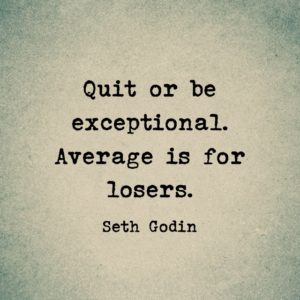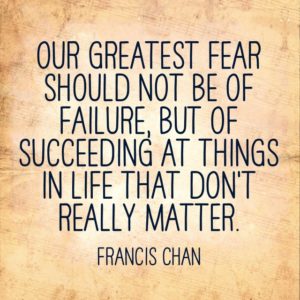
Most experienced real estate investors know very well what discouragement feels like.
The life of a business owner can be filled with extremes. If you're doing things right, it's only a matter of time until you experience both the soaring highs and the occasional moments of darkness and despair that come with the entrepreneurial gig.
I don't care what the gurus say—building a thriving real estate investing business is not an easy task. If it were easy, we'd all be multi-millionaires (and there would be no need for books, blogs, podcasts, and the like). The reality is that real estate investing is a business full of challenges, and success takes time, trial, and error.
Any successful company is loaded with complexities that require a great deal of endurance and attention to detail (especially when things don't go as planned). It doesn't help that we live in a world that glorifies convenience, tempts people with promises of comfort and ease, all while telling us to chase after any and every dream that looks exciting. The unfortunate truth is—things like “convenience” and “comfort” have very little to do with a successful real estate business.
Is Difficulty Optional?
In Seth Godin‘s book The Dip, he dives into this subject in great detail. Here are some concepts from his writing that I want you to think long and hard about:
If something is worth doing, there will probably be some difficulty along the way.
- There is a very high cost associated with being the best at anything. Many people can't handle this cost, and as a result, they quit. When people quit, it creates scarcity, and scarcity creates value.
- The existence of difficulty is the reason there is a profit in anything. Without difficulty, there would be no problem for you to solve and no reason for your existence in the market. You should be happy that these problems exist because they're the origin of your opportunities!
- When your journey gets hard and yet you keep going, this increases your chances of becoming the best in your field and, ultimately, beating your competition. Winners understand when their journey is worth the trouble AND when it makes sense to throw in the towel. They know which challenges are worth enduring today because it will help them escape significantly greater pain later.
Often, It's Appropriate to Quit
Vince Lombardi was once quoted as saying:
“Quitters never win and winners never quit.”
Seth Godin's response to this quote is, “Bad advice“:
“Winners quit all the time. They just quit the right stuff at the right time.”
If you’re honest with yourself, I think you'll find that there are many instances in life when “quitting” is undeniably the right thing to do. Think about it:
- What if you had never quit your first job?
- What if you had never quit one of your bad habits?
- What if you chose to ignore all guidance about course-correcting throughout your life?
Part of the difficulty with quitting is that our culture has attached a very negative stigma with the word “quit.” The truth is, winners quit all the time—they just do it strategically. The important thing is to quickly identify when something is worth pulling the plug as soon as possible. Every extra second you spend working on something destined for failure is time you'll never get back. The people who achieve the greatest successes in life know how to fail quickly rather than allowing a lost cause to consume their lives.
You Can Have Anything, But Not Everything
Regardless of what you're pursuing, it is vitally important to establish your priorities (both in your business and personal life). You need to thoroughly understand which things rank near the top of this list (work, family, education, spirituality, friends, money, etc.) and the exact order in which they rank. Eliminate any ambiguity about where your entrepreneurial endeavors fit into this list.
Think about it like this:
If you create a hugely successful real estate business, what impact (positive or negative) will this have on the individual items on your priority list?
- What goals will a successful business help you to accomplish? What's the point of all this effort?
- What price will you have to pay for this kind of success? Is it worth the price?
- Suppose you decide to quit this business today. What implications will this have for your future?
- Is it possible to pursue this venture on a smaller scale? Or do you really need to take the all-or-nothing approach?
Of course, I can't answer any of these questions for you, but I do think they are important to think through as you're coming to a decision. The “right” answer depends on what direction you want your personal and financial life to go, and only YOU can draw this conclusion.
The important thing is to recognize that generally speaking, you can have anything you want in this life, but you can't have it all. EVERY decision you make has an associated cost, so make sure you're thinking this through. Once you establish which costs you can afford to pay for (and which ones aren't worth the price), I think you'll find that it gets easier to decide which things you need to quit and which things you should relentlessly pursue.


 If something is worth doing, there will probably be some difficulty along the way.
If something is worth doing, there will probably be some difficulty along the way. If you create a hugely successful real estate business, what impact (positive or negative) will this have on the individual items on your priority list?
If you create a hugely successful real estate business, what impact (positive or negative) will this have on the individual items on your priority list?
